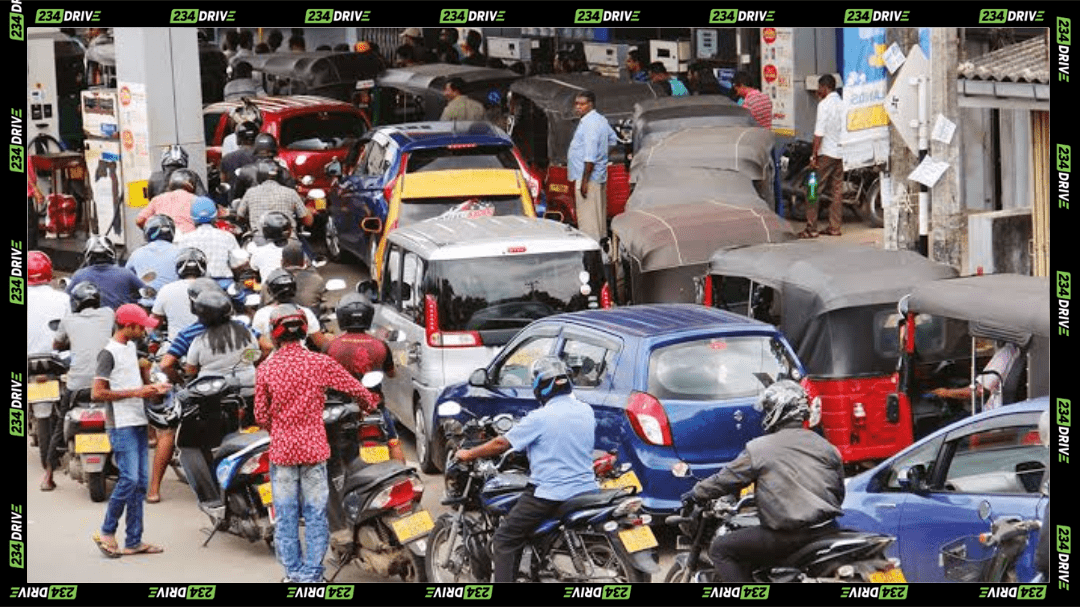On Monday, September 29, 2025, senior oil workers under the Petroleum and Natural Gas Senior Staff Association of Nigeria (PENGASSAN) launched an industrial action over dismissals at the Dangote Refinery.
A day into the strike and key energy agencies have been disrupted and concerns raised at the risk of wider supply interruptions should it continue. Although a court has restrained parts of the action, the Nigeria Labour Congress (NLC) is mobilising affiliates, and talks between the parties remain stalled.
If you’re just trying to get to work, keep your shop open, or send the kids to school, the Dangote–union clash can feel far away, but it isn’t. Oil-sector strikes and refinery slowdowns typically show up first at the pump and in bus fares—then in market prices.
We’ve seen it before: fuel hikes forcing households and small businesses to cut back, with transport and generator costs doing most of the damage.
So what does this dispute mean or potentially lead to for Nigerians?
Commuters can expect pressure on fares and longer queues if supply dips—even briefly.
Small businesses might see delivery fees and generator spending jump at the same time, squeezing margins.
For students and families, the impact will likely be felt in increased school run costs, feeding costs, and market prices.
Beyond the Dangote–PENGASSAN dispute, other forces can also tip Nigeria toward a fuel price spike or product scarcity—especially FX, crude-sourcing policy, and fragile downstream logistics.
Two pressure points matter now. Pricing and currency: Dangote recently told customers it was suspending petrol sales in naira after exceeding its naira-crude allocation (although Dangote has now resumed naira sales of petrol). Marketers warn any shift toward dollar-linked pricing would lift pump prices.
Even talk of FX pass-through can move danfo, keke, okada, and ride-hailing fares within days. Moreover, a separate dispute around tanker-driver union rights could slow depot loading and station supply. That is how queues return and area and black market pricing appear.

In moments like this, small adjustments matter. Here are quick, everyday steps Nigerians can take to stay steady, save costs, and avoid losing track of transport and household funds. At least till the Government is able to stabilise price and supply.
How to prepare (practical, short-term tips) for mobility and cost pressures during fuel price hikes.
- Top up when prices dip; don’t wait for the last liter.
- Plan routes the night before and combine errands to cut trips.
- Share rides or use staff buses; set up carpool WhatsApp groups.
- Keep a small weekly “transport buffer” in your budget.
- Businesses: batch orders, fix delivery days, and state any fare surcharge upfront.
- Track official updates and your local station’s board price.
- Trim generator hours; schedule heavy power use to ‘NEPA’ windows.
- Have a backup commute (BRT/alt stop) if your nearest station runs dry.
- Leave earlier on high-risk days; queues and traffic may spike.
- Keep receipts so you can spot creeping costs fast.
It might be tempting to stock up on fuel, but buying and storing large quantities at home isn’t advisable, as it carries real fire and safety risks. So even if you have a generator or a fuelling storehouse, try to resist the urge.
Even those using electric or hybrid vehicles won’t be completely shielded; while their mobility costs may not rise directly, they’ll still feel the impact through higher prices on goods, food, and services moved by fuel-powered transport.
The good news is that government officials are already in talks to resolve the disputes, so there’s a fair chance the situation may ease before it spirals into widespread shortages or another round of painful price hikes.










